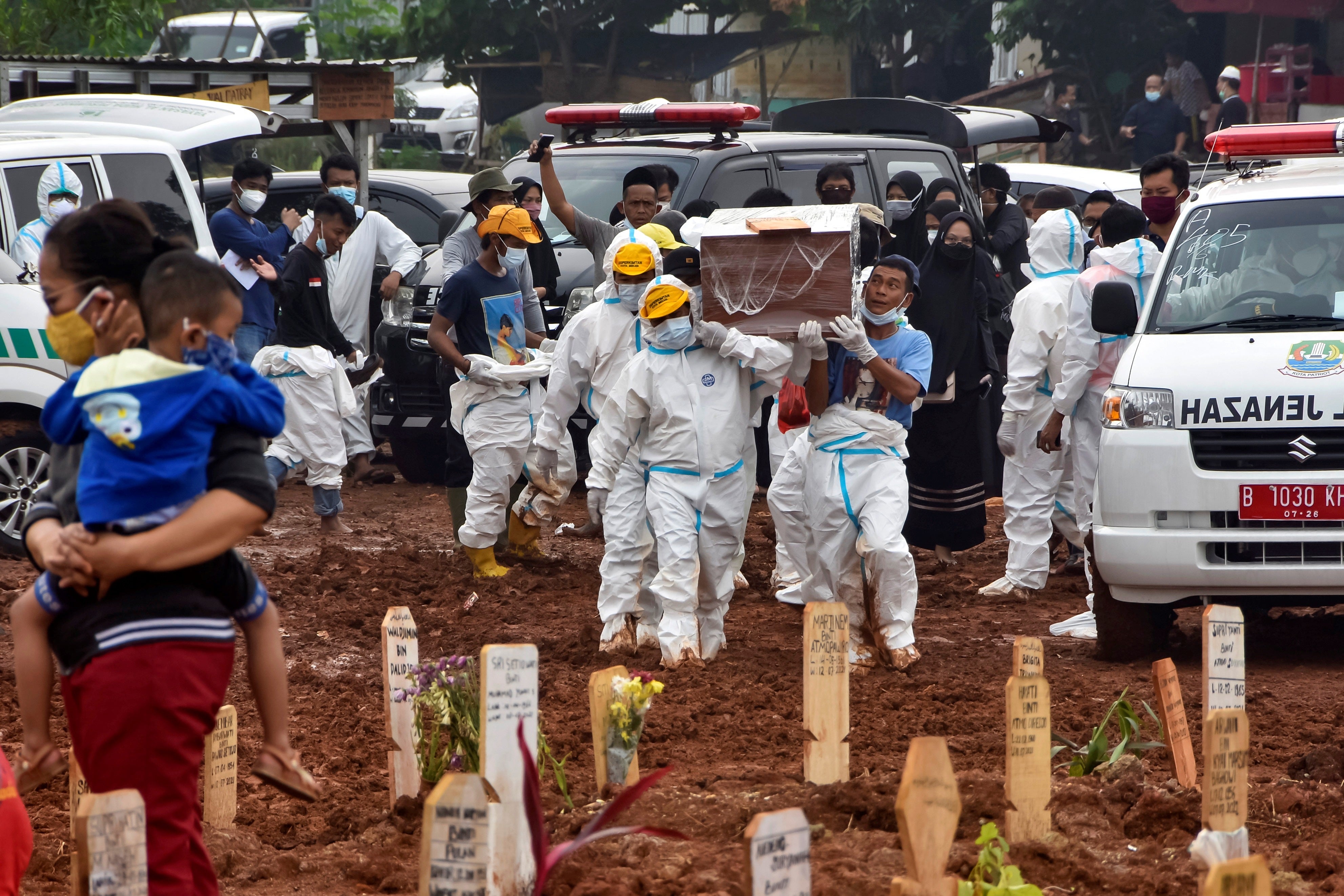Indonesia records highest number of Covid-related deaths
Surge in cases has propelled Indonesia to divert nearly all its oxygen production for medical use

Your support helps us to tell the story
From reproductive rights to climate change to Big Tech, The Independent is on the ground when the story is developing. Whether it's investigating the financials of Elon Musk's pro-Trump PAC or producing our latest documentary, 'The A Word', which shines a light on the American women fighting for reproductive rights, we know how important it is to parse out the facts from the messaging.
At such a critical moment in US history, we need reporters on the ground. Your donation allows us to keep sending journalists to speak to both sides of the story.
The Independent is trusted by Americans across the entire political spectrum. And unlike many other quality news outlets, we choose not to lock Americans out of our reporting and analysis with paywalls. We believe quality journalism should be available to everyone, paid for by those who can afford it.
Your support makes all the difference.Indonesia on Friday reported a record high of 1,566 death from coronavirus infection, taking the total number of fatalities to 80,598 and making it the latest epicentre for the pandemic.
The south-east Asian country has been seeing a surge in coronavirus cases fuelled by the highly contagious Delta variant, first reported in India. It has recorded 49,071 daily infections, taking the total number of cases to 3,082,410.
With rapidly rising cases and the country’s overwhelmed health system teetering on the edge of collapse, Indonesia has been forced to convert nearly 90 per cent of its oxygen production for medical use to meet the demand of Covid-19 patients struggling to breathe.
Before being hit by the crisis, the country had a daily demand of 400 tons of medical oxygen. But with the current surge in the cases of infection, the daily need has gone up by five times, reaching more than 2,000 tons a day, according to deputy health minister Dante Saksono.
Health infrastructure in the country’s easternmost province of Papua is also overstretched, with bed occupancy rate reaching 100 per cent in some of the hospitals.
Dr Aaron Rumainum, head of the Papua health agency’s disease control and prevention unit, said medical professionals are forced to use emergency units and tents to treat the patients.
“We have the same problem as Java. Isolation rooms are full and there is a lack of oxygen,” he told Reuters, adding that the Delta variant has now been detected in the province as well.
The fear of the situation getting out of hand is higher in under-developed regions like Papua because of poorly equipped health facilities.
“Papua not only has human resources shortage issues but also shortage of medicines and health facilities,” Adib Khumaidi, the head of the risk mitigation team at the Indonesian Medical Association, was quoted as saying by the Guardian.
On Tuesday, Papua’s governor Lukas Enembe announced that the residents of the province should prepare for a month-long lockdown in August but the proposal is still waiting for approval from President Joko Widodo.
“Before Covid, there was already endemic disease in Papua that was not well handled, such as malaria and tuberculosis, let alone this emergency situation,” said Adriana Elisabeth, a political analyst from the Indonesian Institute of Sciences (LIPI) who researches Papua. “If the government does not restrict mobility, the healthcare system will certainly collapse,” she said.
(Additional reporting from the wires)
Join our commenting forum
Join thought-provoking conversations, follow other Independent readers and see their replies
Comments